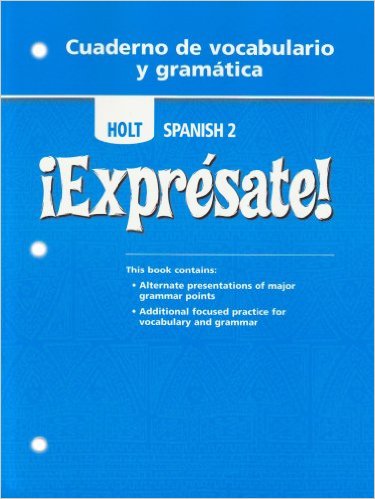
All Solutions
Page 70: Gramatica
1. There was (“Había“) a large house and there were (“eran“) four bedrooms and three bathrooms.
2. Había dos perros y eran traviesos y juguetones.
3. Su mamá era una buena cocinera y siempre habían postres deliciosos.
4. Hermanos eran traviesos y siempre habían juguetes en el piso.
This sentence talks about *televisión a colores* (color television), which is the underlined word. The verb *haber* is used, so we have to use its imperfect to form the answer and express that unlike now, before there was black and white television.
|Spanish |English |
|–|–|
|… había televisión en blanco y negro. | … there was black and white television.|
In this case the underlined word is *pocos* (few), whose opposite is *muchos* (many). In addition, the verb *haber* is used, so we must use its imperfect to form the answer.
| Spanish| English|
|–|–|
|… había muchos. |… there were many.|
Here the underlined word is *paciente* (patient), the opposite of which is clearly *impaciente* (impatient). Unlike the previous sentences, this one uses the verb *ser*, so we must use its imperfect to describe how the person used to be.
|Spanish |English |
|–|–|
|… era impaciente. | … I was impatient.|
Here again we must use the imperfect of the verb *haber*. However, in this sentence we should note that the underlined word is *consentido* (consented), which may not have a clear opposite.
In this case, we must think about the situation in general: if now there are many spoiled children, what could there be before to make the situation the opposite? Stricter parents.
| Spanish | English|
|–|–|
| … había padres más estrictos.|… there were stricter parents. |

